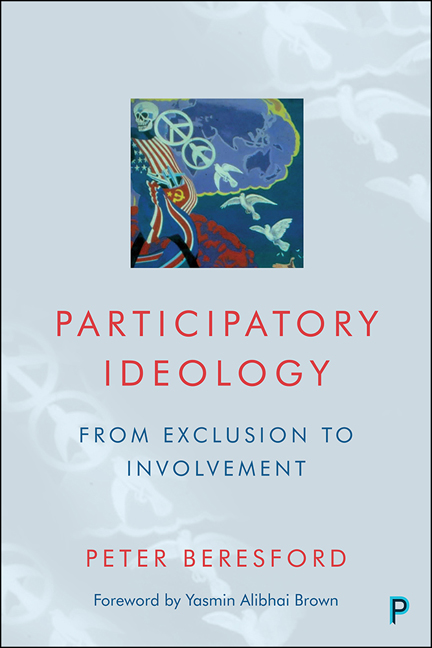7 - Developing our own organisations
Published online by Cambridge University Press: 21 December 2021
Summary
The greatest humanistic and historical task of the oppressed: to liberate themselves.
Paulo Freire, Brazilian educator and philosopher, 1972, p 3Once we start thinking about the value of getting organised and working together – in this case to have an effective voice in developing and shaping political ideology, then we need to think about developing our own groups, our own organisations, that is to say self-organisations, run by the people they are for, rather than set up by others for them. Such organisations are the physical expression of most movements. Nowadays, they can take many forms, from virtual groupings that connect people through social networking, through to the most traditionally structured bodies that are nonetheless still based on the principle of self-organising – getting together to make change on your own behalf (Beresford and Carr, 2018, pp 289–335).
It is important to make clear, as we seek to operationalise the argument for participatory ideology, that not all organising and collective working is based on the principle of self-organising. Guy Standing, the economist and professor of development studies, has expressed the conventional view that collective action per se is enough, when he argues: ‘Collective action remains the best way of renewing the march towards the great trinity of liberty, equality, and solidarity’ (Standing, 2015). Huey Newton, however, the African-American activist and co-founder of the Black Panther Party, offered a word of warning, reminding us that even reform and radical organisations can lose sight of what they are meant to be doing or fail to offer what's needed:
You can tell the tree by the fruit it bears. You see it through what the organization is delivering as far as a concrete program. If the tree's fruit sours or grows brackish, then the time has come to chop it down – bury it and walk over it and plant new seeds. (Findley, 1972)
The centrality of shared experience
This has led me to the view that the best basis for organising and working together is likely to be shared experience. I have come to that conclusion from my own direct involvement in collective action and indeed that of countless others. Having something in common that unites us and means we have a shared experience – of discrimination or oppression – seems to be a powerful enabler of effective collective working.
- Type
- Chapter
- Information
- Participatory IdeologyFrom Exclusion to Involvement, pp. 99 - 110Publisher: Bristol University PressPrint publication year: 2021



